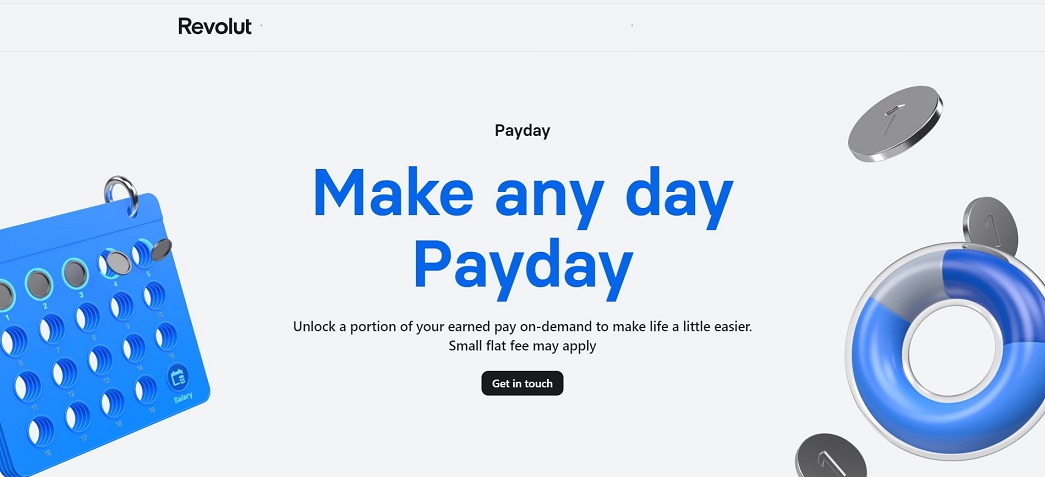
The feature, which allows employees to access part of their wages as they earn them, launched in the UK in August. Revolut has today (23 September) announced the release of its ‘earned wage access’ feature in Ireland.
Payday, which launched in the UK just over a month ago, allows customers to access a portion of their wages proportional to what they’ve earned, before their normal pay day. It costs users a flat fee of €1.75 per withdrawal and is only available at participating workplaces.
Revolut described Payday as a “lower-cost alternative to high-cost credit cards or payday loans” that will have “no impact on an employee’s credit score”.
It said that companies don’t have to pay to use Payday, but that it would be an “attractive perk to attract and retain employees”. It added that Revolut’s platform can be integrated with existing payroll systems.
Employers that offer Payday still only have to pay wages at the end of the week or month, with Revolut covering the cost between employees withdrawing money and the time when they’d usually be paid.
Revolut plans to roll the Payday feature out across more EEA countries in the coming months, as well as in the US.
Banking 4.0 – „how was the experience for you”
„To be honest I think that Sinaia, your conference, is much better then Davos.”
Many more interesting quotes in the video below: